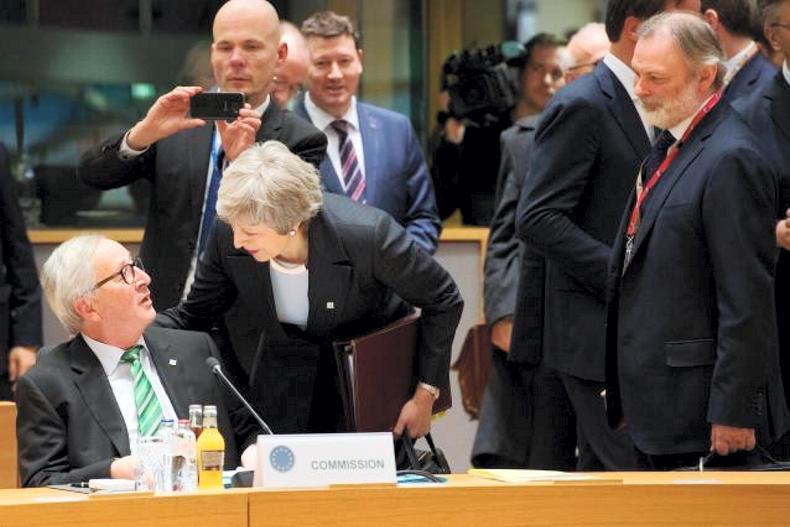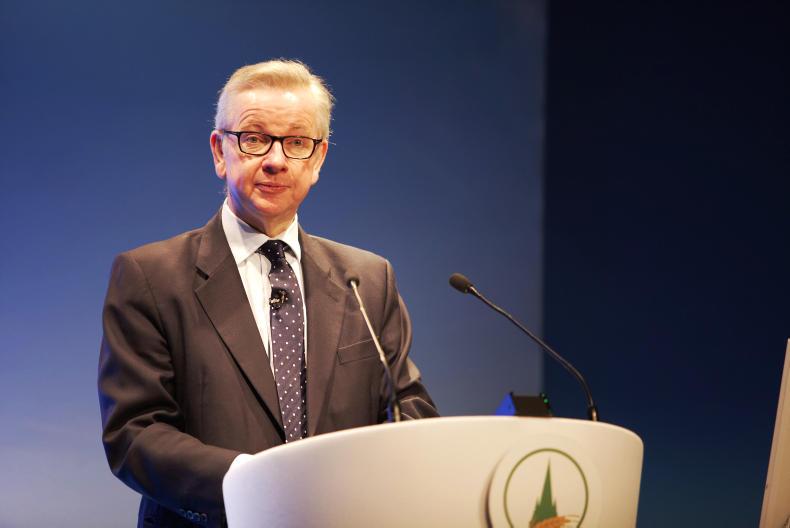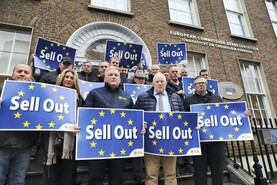As the UK begins the final countdown to departure from the most ambitious free-trade deal (FTA) in the world between 28 independent countries, it is becoming ever more apparent that the utopia of a wider world where the UK can have free trade under its own terms doesn’t exist.
The latest evidence of this comes from the publication this week of the terms on which the USA wants to do business.
In terms of global trade negotiations, the USA is the global superpower, followed by China who will ultimately overtake the US.
Then comes the EU, followed by Japan. Within the EU, Germany is the world’s fourth most powerful economy, then France and the rest jockey for the next.
Trade pecking order
The UK is therefore a significant global economy in its own right but the point is that when coming to a trade negotiation, the larger economies are usually the dominant party.
It should therefore be no surprise that when the US Trade Representative (USTR) published its outline proposals for negotiating a FTA with the UK post-Brexit, the very first page makes it clear that it expects US production standards for agricultural produce to be accepted in the UK.
Put bluntly, that means hormone-treated beef and chlorine-washed meat, most often referred to in the context of chicken but equally applicable to all meats.
US power
There should be no surprise in this. In the three years of FTA negotiations between the USA and the EU under the TTIP umbrella, stalemate had been reached long before President Trump pulled the plug on talks when he took up office in January 2017.
The US also has science on its side when it insists on the acceptance of US production standards.
After a protracted challenge to the EU ban on US hormone-treated beef at the World Trade Organisation (WTO) disputes resolution mechanism, the decision found in favour of the US.
Michael Gove, the minister who has responsibility for agriculture, has repeatedly said that there will be no diminution of standards in the UK post-Brexit.
The WTO agreed that the US could impose retaliatory sanctions against the EU and ultimately the issue was resolved in a negotiation that created a 45,000t high-quality beef quota.
This gave zero-tariff access for 45,000t of non-hormone treated beef, which at the outset was almost exclusively availed of by the US.
More recently, several other countries have been using this quota to export to the EU and the US has reopened the issue, dissatisfied that its share has been reduced to a quarter of the original quota.
TTIP
In the TTIP negotiations, the US appeared to make mutual recognition of standards a red line issue. Now they have laid down a marker with the UK that this will be the basis on which they negotiate with the UK which immediately creates a crunch point.
Michael Gove, the minister who has responsibility for agriculture, has repeatedly said that there will be no diminution of standards in the UK post-Brexit.
Others, like the minister with responsibility for trade, Liam Fox, are more amenable to accepting US standards, so the UK will have a decision to make.
No easy deals
This is the latest example of just how tough the world of trade negotiation is, and a reminder of what lies ahead in a future trade negotiation with the EU, which begins following the withdrawal. We have already observed the small number of countries which were prepared to roll over EU trade deals. Even the division of the 228,000t New Zealand sheepmeat quota agreed between the EU and the UK on the basis of recent trade has been challenged by New Zealand at the WTO.
Brexit may have taken place in four weeks’ time but the post-Brexit negotiations will make the withdrawal negotiation seem straightforward
FTA negotiations, even with the countries regarded as the friendliest, are tough and tense affairs. The EU and Canada took eight years, the EU and Japan took five years and that was hastened by the USA pulling out of the wider Trans Pacific Partnership deal that involved Japan and 10 other countries.
The UK will soon be starting a journey to replicate these as well as try and recreate something with the EU.

British Prime Minister Theresa May in conversation with European Commission President Jean Claude Juncker but the real talking on a future trading relationship with the EU only starts after Brexit.
Brexit may have taken place in four weeks’ time but the post-Brexit negotiations will make the withdrawal negotiation seem straightforward.
Navigating Global Trade conference
There will be an opportunity to hear the views and debate the complexities of global trade at the Irish Farmers Journal Navigating Global Trade conference in partnership with Grant Thornton on Friday 15 March in the RDS.
This will also be an EU citizen’s dialogue event and you can register at " target="_blank">https://www.eventbrite.ie/e/navigating-global-trade-conference-2019-tickets-57745915588
As the UK begins the final countdown to departure from the most ambitious free-trade deal (FTA) in the world between 28 independent countries, it is becoming ever more apparent that the utopia of a wider world where the UK can have free trade under its own terms doesn’t exist.
The latest evidence of this comes from the publication this week of the terms on which the USA wants to do business.
In terms of global trade negotiations, the USA is the global superpower, followed by China who will ultimately overtake the US.
Then comes the EU, followed by Japan. Within the EU, Germany is the world’s fourth most powerful economy, then France and the rest jockey for the next.
Trade pecking order
The UK is therefore a significant global economy in its own right but the point is that when coming to a trade negotiation, the larger economies are usually the dominant party.
It should therefore be no surprise that when the US Trade Representative (USTR) published its outline proposals for negotiating a FTA with the UK post-Brexit, the very first page makes it clear that it expects US production standards for agricultural produce to be accepted in the UK.
Put bluntly, that means hormone-treated beef and chlorine-washed meat, most often referred to in the context of chicken but equally applicable to all meats.
US power
There should be no surprise in this. In the three years of FTA negotiations between the USA and the EU under the TTIP umbrella, stalemate had been reached long before President Trump pulled the plug on talks when he took up office in January 2017.
The US also has science on its side when it insists on the acceptance of US production standards.
After a protracted challenge to the EU ban on US hormone-treated beef at the World Trade Organisation (WTO) disputes resolution mechanism, the decision found in favour of the US.
Michael Gove, the minister who has responsibility for agriculture, has repeatedly said that there will be no diminution of standards in the UK post-Brexit.
The WTO agreed that the US could impose retaliatory sanctions against the EU and ultimately the issue was resolved in a negotiation that created a 45,000t high-quality beef quota.
This gave zero-tariff access for 45,000t of non-hormone treated beef, which at the outset was almost exclusively availed of by the US.
More recently, several other countries have been using this quota to export to the EU and the US has reopened the issue, dissatisfied that its share has been reduced to a quarter of the original quota.
TTIP
In the TTIP negotiations, the US appeared to make mutual recognition of standards a red line issue. Now they have laid down a marker with the UK that this will be the basis on which they negotiate with the UK which immediately creates a crunch point.
Michael Gove, the minister who has responsibility for agriculture, has repeatedly said that there will be no diminution of standards in the UK post-Brexit.
Others, like the minister with responsibility for trade, Liam Fox, are more amenable to accepting US standards, so the UK will have a decision to make.
No easy deals
This is the latest example of just how tough the world of trade negotiation is, and a reminder of what lies ahead in a future trade negotiation with the EU, which begins following the withdrawal. We have already observed the small number of countries which were prepared to roll over EU trade deals. Even the division of the 228,000t New Zealand sheepmeat quota agreed between the EU and the UK on the basis of recent trade has been challenged by New Zealand at the WTO.
Brexit may have taken place in four weeks’ time but the post-Brexit negotiations will make the withdrawal negotiation seem straightforward
FTA negotiations, even with the countries regarded as the friendliest, are tough and tense affairs. The EU and Canada took eight years, the EU and Japan took five years and that was hastened by the USA pulling out of the wider Trans Pacific Partnership deal that involved Japan and 10 other countries.
The UK will soon be starting a journey to replicate these as well as try and recreate something with the EU.

British Prime Minister Theresa May in conversation with European Commission President Jean Claude Juncker but the real talking on a future trading relationship with the EU only starts after Brexit.
Brexit may have taken place in four weeks’ time but the post-Brexit negotiations will make the withdrawal negotiation seem straightforward.
Navigating Global Trade conference
There will be an opportunity to hear the views and debate the complexities of global trade at the Irish Farmers Journal Navigating Global Trade conference in partnership with Grant Thornton on Friday 15 March in the RDS.
This will also be an EU citizen’s dialogue event and you can register at " target="_blank">https://www.eventbrite.ie/e/navigating-global-trade-conference-2019-tickets-57745915588







 This is a subscriber-only article
This is a subscriber-only article










SHARING OPTIONS: